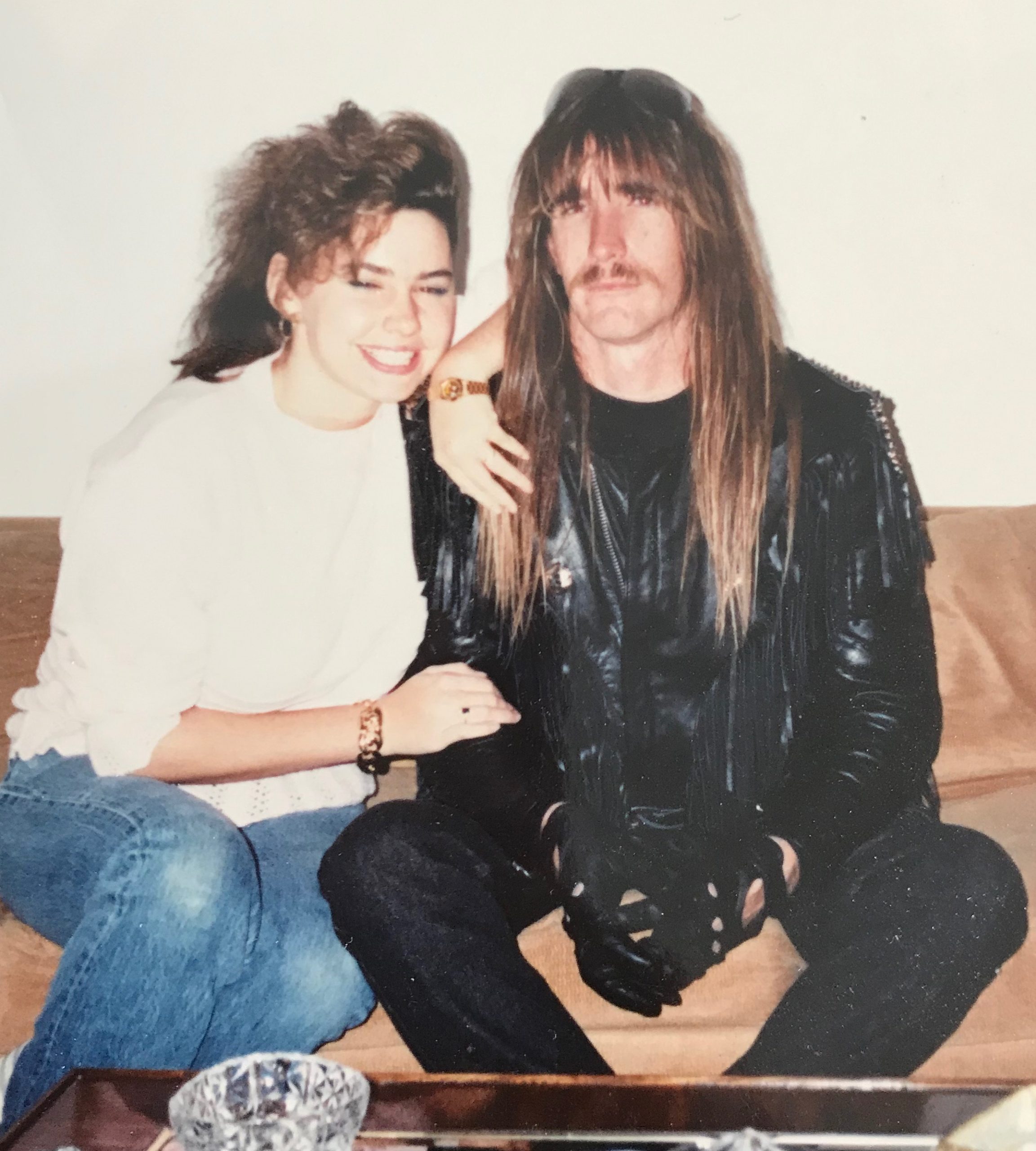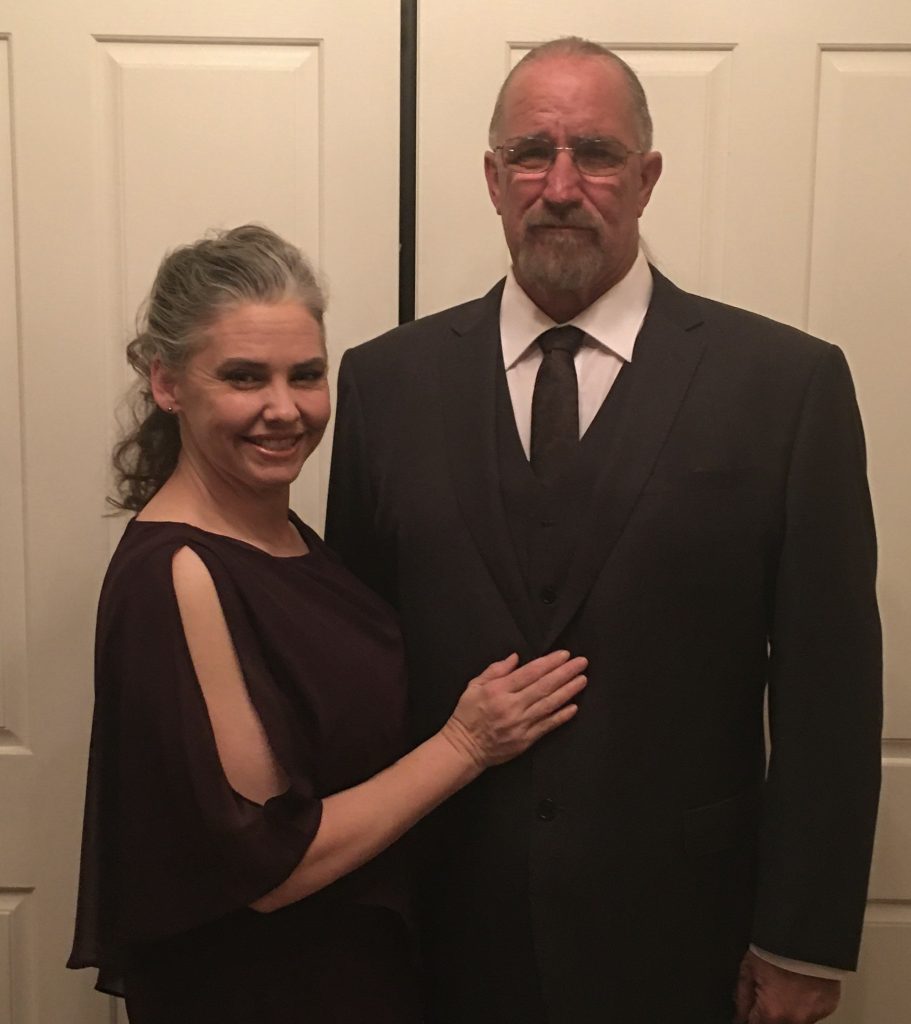🎶 The Journey Begins (1985–Present)
In 1985, Robert Wright started his path toward becoming a professional musician, playing in several hard rock and heavy metal bands over the years:
- 1984–1985: Death Stalker
- 1985–1986: L.A. Bash
- 1986–1988: Spitfire / Harder Faster
- 1988–1989: Malteze
- 1992–1996: GREED (a.k.a. Simon Le Greed)
Starting as a rhythm guitarist, Robert’s vocal range began to improve, despite his early self-deprecating view of his own vocals: "I really sucked at vocals when I first started seriously playing guitar in 1984."
👨👧👦 The Family Shift
In 1996, Robert made the decision to step away from GREED and his music career to focus on being a full-time husband and father. “Anyone who’s been in a gigging band knows it’s almost impossible to balance both without one suffering,” he says. “I chose family, and I still know it was the right call.”
⚡ Digital Pump & MP3.com
In 2000, Robert released industrial/electronic albums under his side project Digital Pump, alongside two successful $GREED$ singles on MP3.com. However, MP3.com’s major label acquisition in 2004 wiped independent artists from the platform, leading Robert to shelve his upcoming album and retreat from music.
🔥 $GREED$ - Better Late Than Never
In 2015, with the resurgence of independent music platforms, Robert returned to his heavy metal roots. In 2016, he recorded “Better Late Than Never”, a collection of ten tracks written between 1987 and 1994.
🙏 Acknowledgements
"I would like to thank one of my best friends Jerry Sandeen for getting me re-started playing guitar and encouraging me to be a musician. I learned a lot from him and for that I am eternally grateful. I took guitar lessons when I was 12-13 but ended up quitting after a year (got tired of playing Old MacDonald had a farm :). I would also like to thank all the musicians who have had an impact on my music in no particular order: Duane Kindoll (RIP), John Elmes, Dave Carruth, Jim Parris, Dori Chitayat, Scott Truelove, Fred and Rick Mayelian, Joe Tarolli, Kirk Lee, Barbara Malteze (Chicago Dan, John P., Chris and a very special Fuck you to Jerry!), Rob Labash, John Owens(RIP), Wyatt Tarver, Bob Hand, Mike Finnegan, Eric Hunter, Jeff Ganns, Benji Gordon and Pete Emard. I’m sure there are a few I am leaving out but these are the names that I can remember at this moment.
🎧 Musical Evolution & Influences
Robert’s music taste evolved over time:
- Childhood: Classical, ‘50s, and ‘60s classics
- Adolescence (’70s): Stadium Rock, Glam, Hard Rock, and early Heavy Metal
- Early ‘80s: New Wave ➔ Punk ➔ Thrash/Speed Metal
- Later in the ‘90s: Industrial Metal, Electronic, and beyond
📀 Favorite Bands & Genres (In no order)
- Classic Rock: Beatles, David Bowie, The Who, ELO, Foreigner, YES, Boston, Kansas, BTO, Elton John, Beach Boys, Steve Miller and more.
- Metal: Judas Priest, Black Sabbath, Iron Maiden, Anthrax, Megadeth, Helloween, Dark Angel, Slayer, Metallica, Pantera, and more.
- Punk: G.B.H., Dead Kennedys, The Adicts, China White, Suicidal Tendencies, Minor Threat, SUB-HUM-ANS, UK SUBS, Dr. Know, and others.
- New Wave: Oingo Boingo, Devo, Siouxsie and the Banshees, Gary Numan, Yaz, Flock of Seagulls, Wall of Voodoo, The Smiths, and others.
- Hard Rock: AC/DC, Queen, Van Halen, Alice Cooper, Pink Floyd, Cheap Trick, Styx, Ted Nugent, Montrose, Sweet, Nazareth, Heart and more.
- Industrial/Nu-Metal: Slipknot, Korn, NIN, Ministry, The Prodigy, Rob Zombie, KMFDM, Smashing Pumpkins, In This Moment and more.
🎠 Influential Albums (Thrash & Beyond)
- Anthrax – *Armed and Dangerous, Spreading the Disease, Among the Living*
- Megadeth – *Peace Sells, So Far, So Good, So What*
- Overkill – *Feel the Fire, Taking Over*
- Metallica – *Kill ‘Em All, Ride the Lightning*
- Slayer – *South of Heaven*
- Savatage – *Dungeons Are Calling, Sirens*, and more.
🧠 Philosophy on Music
Robert believes music transcends genres: "I appreciate almost all styles, even the ones I don’t personally like. Hate is a waste of energy." For him, music is about heart, rhythm, and melody. He values performance and vocal talent over whether an artist wrote their own songs, "That trend’s been around since the beginning of the business."
🎸 Gear
- Guitars: B.C. Rich, Gibson, Ibanez, and Gretsch
- Drums: Roland V-Drums TD-17KVX2, DW 3000 Hardware
- Keyboards: Korg Nautilus Pro 88, Korg Triton Pro 88
- Amps: Line 6 POD Pro Rack, Crate, Full set Rockman Mini Rack Effects, Peavy Revalver
- Effects: T.C. Electronic and T.C. Helicon processors
- Recording Gear: Acid Pro, Focusrite Scarlett 18i20, Delta 44
🎨 Artistic Evolution
Robert's artistic journey began in the early 1980s, when he hand-painted back panels on leather jackets during the punk rock scene. These early works were a mix of rebellion and creativity, and they helped Robert develop a unique aesthetic that would later influence his digital art. A pivotal moment came during high school when Robert took four years of graphic arts and design. Under the guidance of his teacher, Gary Lindberg, Robert honed his skills, learning the fundamentals of design, silk screen printing and digital artwork. These years laid the foundation for his transition from traditional art to the digital fantasy and sci-fi realms he now explores.
🖋️ A New Chapter: Getting Into Novel Writing
In early 2025, Robert ventured into the world of novel writing, fueled by his lifelong love of storytelling. From his early days of playing Dungeons & Dragons with family and friends, Robert developed a deep passion for world-building and character creation. These tabletop adventures sparked his imagination and laid the groundwork for the intricate narratives he now weaves in his novels. Combining his extensive experience in music, visual art, and those formative D&D sessions, Robert sought a new creative challenge. His debut project, Knightmare: Rising from the Ashes, blends rich fantasy lore with immersive world-building, reflecting his diverse creative journey. Robert found writing to be the perfect medium to expand on the stories he had long imagined through music and art, bringing his characters and worlds to life in ways he had never done before.
💪 Embracing Change: Health Struggles & The Shift to Novel Writing
Over the years, Robert faced significant health challenges that altered his ability to perform music in the way he once did. However, this didn't signal the end of his musical journey—rather, it led him to adapt and find new ways to create. While the physical demands of performing have changed, his passion for music remains. At the same time, these challenges provided an opportunity to explore new creative avenues, leading Robert to novel writing. Through writing, he found a way to continue telling stories and sharing his creativity, blending his past influences and experiences with fresh, exciting projects.


